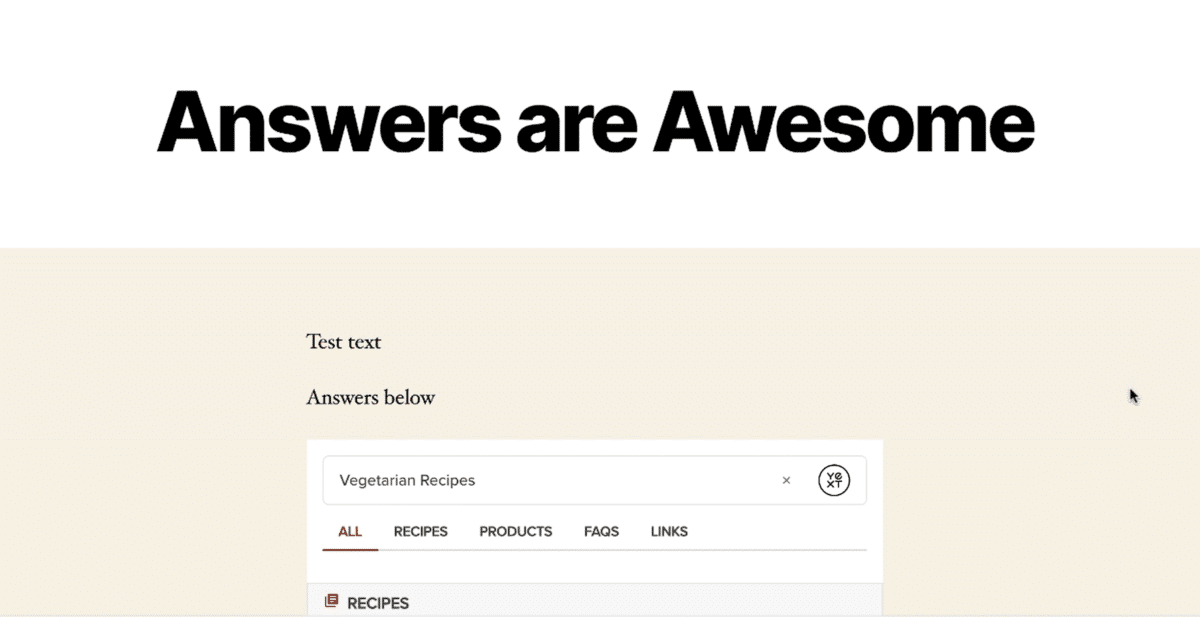Last week, Yext launched its Yext Answers plugin to the WordPress community. The goal was to bring a platform that won the Best Software Innovation category of the 2020 Global Search Awards to WordPress. However, my experience was far from satisfactory.
“For people searching on a WordPress website, the Answers Connector provides a seamless search experience,” said Alexandra Allegra, the Senior Product Marketing Manager at Yext. “For businesses and organizations that integrate it, it drives higher rates of conversion, which generates more revenue. It helps lower support costs because when businesses can deliver detailed, official answers, customers don’t have to call customer service. And finally, it unveils valuable customer insights, because businesses can see new questions coming in — in real-time.”
Yext Answers is essentially trialware. Technically, the plugin itself is free. However, Yext is currently running a 90-day free trial for access to its Answers platform. The website does not seem to provide an easy way to find what the true cost will be after that initial 90 days. To upgrade, users must contact the Yext team via email or phone.
The website does provide an estimated cost calculator. The lowest tier available via this calculator is for 20,000 searches per month at $5,000. It is unclear if there are lower pricing options. The Yext team provided no further details when asked about billing.
The plugin is marketing itself primarily toward business users. It can replace a WordPress site’s traditional search, which is customizable to suit various site owner’s needs, according to the Yext team.
Over the past week, I have discussed this plugin with a representative from the company, watched demo videos, and attempted to test the plugin. Thus far, it has been a subpar experience. I typically forgo writing about plugins that do not pan out. However, after the initial investment into what looked to be an interesting project, I wanted to share my experience, and my hope is that it helps the team build a better product in the long term.
I have yet to get the Yext Answers plugin to work. It requires an account with the Yext website. It also requires that end-users enter multiple fields on the plugin settings screen in WordPress. Unfortunately, after a frustrating amount of searching, I was never able to successfully find all of the correct information or get the information I did have to work. I gave up on the endeavor.
The demo video does show the promise of a somewhat interesting plugin:
Perhaps people who are already familiar with the Yext platform may have better luck. However, I would not recommend it to anyone new, at least in its current state.
There are far better options for connecting via third-party APIs that would be simpler for the average end-user (or even a developer of 15+ years such as myself). The one-click login process provided via the MakeStories plugin, which I covered recently, is a prime example of how to do things right.
We are at a point in the internet era in which end-users should have simple, no-fuss connections between sites. Entering IDs, keys, and other complex fields should be tucked under an “advanced” section of the options screen, not as part of the default experience. Or, they should be so easily available that no one should have trouble finding them.
Two years after the integration of the block editor into WordPress, the Yext team is launching its Yext Answers plugin with shortcodes, which require manual entrance by end-users. Currently, the plugin does not have block equivalents for its shortcodes.
The team was either unwilling or unable to answer even the most fundamental questions about their decision to use shortcodes rather than launching their plugin — in the year 2020 — with at least block alternatives. At points, they even seemed confused about the subject altogether.
The closest the team came to providing feedback after a lengthy discussion was the following, attributed to Rose Grant, the Associate Product Manager:
We’re looking forward to feedback on the initial release of our plugin before iterating further on it, including introducing custom blocks. For this version of the plugin, we wanted to prioritize supporting clients who are using older versions of WordPress.
Packaging a set of shortcodes within a plugin is still a good practice, even for plugin developers who have transitioned fully to supporting the block editor. It allows them to support users who are still working with the classic editor. However, at this point, developers should be building from a block-first mindset. Blocks do not require that users remember specific shortcode names. They provide instant, visual feedback to users in the editor. And, block options (as opposed to shortcode arguments) do not rely on the oftentimes faulty input of user typing.
At this point, all plugin developers should consider shortcodes a legacy feature and useful only as a backward-compatible option for users on the classic editor.
The Communications Strategist for the company pointed out that this is Yext’s first venture into WordPress plugins and that the team may not be able to provide perspective or commentary on such questions related to blocks and shortcodes. However, this is the third Yext-related plugin associated with the plugin author account on WordPress.org.





